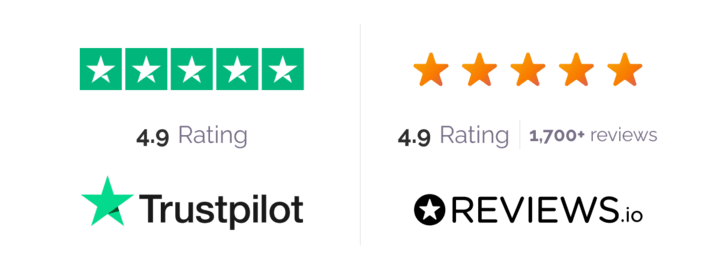Many podcasters eventually fade because they were unable to build the fan base they wanted.
They simply didn’t know the best way to promote their podcasts to find new listeners.
Because it’s free to use, many podcasters try to promote their podcasts via social media, but the trouble is they do so without a clear strategy.
To help you promote your show across channels, here are four tips to help you promote your podcast on social and see more engagement from your posts.
1. Use Humor
When you promote your podcast on social media, providing functional advice or insights can help you reach more listeners.
However, humor is the driving force on Facebook, Instagram, and Twitter according to Convince & Convert. While acting like a professional comedian might not be possible with every post, the more humor you can inject to your posts, the better.
Lost for inspiration? You can always share memes and jokes from other pages that are relevant to your podcast’s topic. This is not to say you should download and re-upload content, but you can retweet with a comment, share a post on Facebook, or even share a post in an Instagram story.
While quotes and audio excerpts are great for giving a taste of what your show’s content is like, humor can help you receive more shares and likes. Humor acts as a pattern interrupter, also called a disrupter, causing people to stop scrolling and pay attention to your account. As new people discover who you are, your podcast will gain more popularity indirectly.
2. Visuals for the Win
People love visuals. This is especially true for Instagram since it is a completely visual platform. Social Champs said, “Using relevant images on social media allows you to earn attention, build loyalty, deliver vital information, and improve engagement.”
Their advice is to use a variety of images, go for colorful shots that grab attention, and avoid selfies. Remember, your podcast must be about your listeners, not about you if you hope to grow a loyal audience. They want to know how your show can help them, and impact their lives not the other way around.

3. Don’t Forget about SEO
While you might not think of search engine optimization as being related to social media for podcasters, Neil Patel says that implementing SEO strategies actually provides you with an opportunity to find more people in your ideal audience. When using Twitter or Instagram, many people just use hashtags that represent the highest number of followers. However, all those people following a certain hashtag might not ever see your post in particular because that hashtag will generate hundreds, if not thousands, of posts that are using it.
Instead, you would be better off doing keyword research on Google to find some keywords that have moderate or low search volume – this is referred to as low-hanging fruit. It’s the longer keywords, or the more specific phrases people are searching for that yield the best results for the small podcaster.
Where a short keyword may have millions of people searching for it, a related keyword phrase might only have 100 to 300 people searching for it. Some keywords might only have 30 to 75 people searching for them. These are your ideal listeners – they are looking for something super specific that your show might be offering. Including these keywords in your social media posts gives your profiles a better chance of appearing on the first page of Google’s search results.
4. Post Consistently

As you use social media to build and market your upcoming content, it is finally time to think about how frequently you should promote it. At a minimum, you should promote your podcast on social media two to four times per week.
Promote your episodes once when they go live, and again a few more times throughout the week. Remember that social media feeds move quickly, so the more frequently you post, the more likely you are to have people find your status updates.
Also, don’t feel like you’re restricted to only posting your latest episodes. If something is relevant to current events, or you just want to re-post it, you should feel free to do so. Again, remember, not everyone will see every post you share, so repeating yourself is perfectly acceptable. And, you can always promote the same thing in different ways. For example, one post could be an image, the next could be a quote from the show, and another could be an audio excerpt. In other words, don’t feel restricted to generic updates like “Hey everyone, my latest episode is live. Check it out here: mypodcastlink.com”
When should you post?
According to Sprout Social these are the best times to post to the various social networks (specifically for media companies):
- Best days and times: Tuesday, Wednesday and Thursday at 5 p.m., Friday from 8–9 a.m.
- Don’t post on: Sunday
- Best day and time: Friday at 9 a.m.
- Don’t post on: Saturday and Sunday
X (formerly Twitter)
- Best day and times: Wednesday at 9 a.m. and Thursday at 9 a.m. and 8 p.m.
- Don’t post on: Saturday
- Best day and times: Wednesday from 8–10 a.m. and noon, Thursday at 9 a.m. and 1–2 p.m., and Friday at 9 a.m.
- Don’t post on: Sunday
➡️ Check out our post The Podcasters Guide to Pinterest!
➡️ Looking for TikTok tips? Check out How to Promote Your Podcast on TikTok.

More Social Media Tips for Podcasters
Social media management tools like Hootsuite, Buffer, Sked Social, and CoSchedule give you the ability to schedule your social media posts in advance.
This helps you make sure you’re posting regularly, and allows you to batch the task of posting your status updates at once. You know we are fans of batching and scheduling your episodes!
Make sure that if you have any guests on your show that you ask them to tag you in their social media updates. This helps your profiles get more attention so you can continue growing your brand.
We also recommend you use a social media calendar. This will help you plan out what you’re going to share across all platforms so you can get a bird’s eye view of what your promotions will look like over time. It can also help you come up with ideas for what to post because you’ll be able to see at a glance when holidays and events are and how they line up with your episode release schedule.
You’ll also want to add your podcast to Facebook. Facebook will read your podcast’s RSS feed and publish your episodes to your News Feed as audiograms.
Finally, don’t feel like you have to use all the social media platforms at once. You can build your clout on one, and get really good at it before branching out to others. We’ve seen many successful podcasters that only promote on Facebook and others that strictly use Instagram. It’s better to start with one and be consistent than burn yourself out.
We hope this post helps you develop your own social media strategy. While we’re talking about social media, feel free to follow us on Facebook, Twitter, LinkedIn, Instagram, and Pinterest.
💡 Your Language on Social Media Matters
A research team at Spotify recently completed a study and found that the language you use in your podcast episodes can have a direct impact on your number of listeners. This carries over to how you engage with your listeners on social media as well.
To increase podcast engagement, we need to know what motivates our listeners. Why do they listen to your podcasts? Are you an entertainer, or are you trying to help your listeners succeed in their fields of interest?
If you’re trying to help your listeners succeed in a particular field or topic, then using emotive word choices should be less critical in the short term. However, it can still be a powerful tool to use if it’s done tastefully.
- If you’re trying to educate your listeners on something, then using simple and straightforward language will help them better absorb the information they are receiving.
- If you want to tell a story, then choosing more complex words can add depth and a feeling of suspense that will keep your podcast interesting.
- It’s okay to be silly and fun in your podcasts and on social media, but remember that you shouldn’t sacrifice the message.
If you aren’t sure how to balance all of these tips together, try experimenting with different language choices until you find one that works for you.
When you’re developing your podcast’s personality, it is vital to think about how language can be used to connect with your audience.
No two podcasts are the same, and so each podcast needs its own unique voice. This voice is the podcast’s personality.
How Do I Promote My Podcast on Social?
If you’re looking for more tips on how to effectively promote your podcast on social media, check out the video below!




